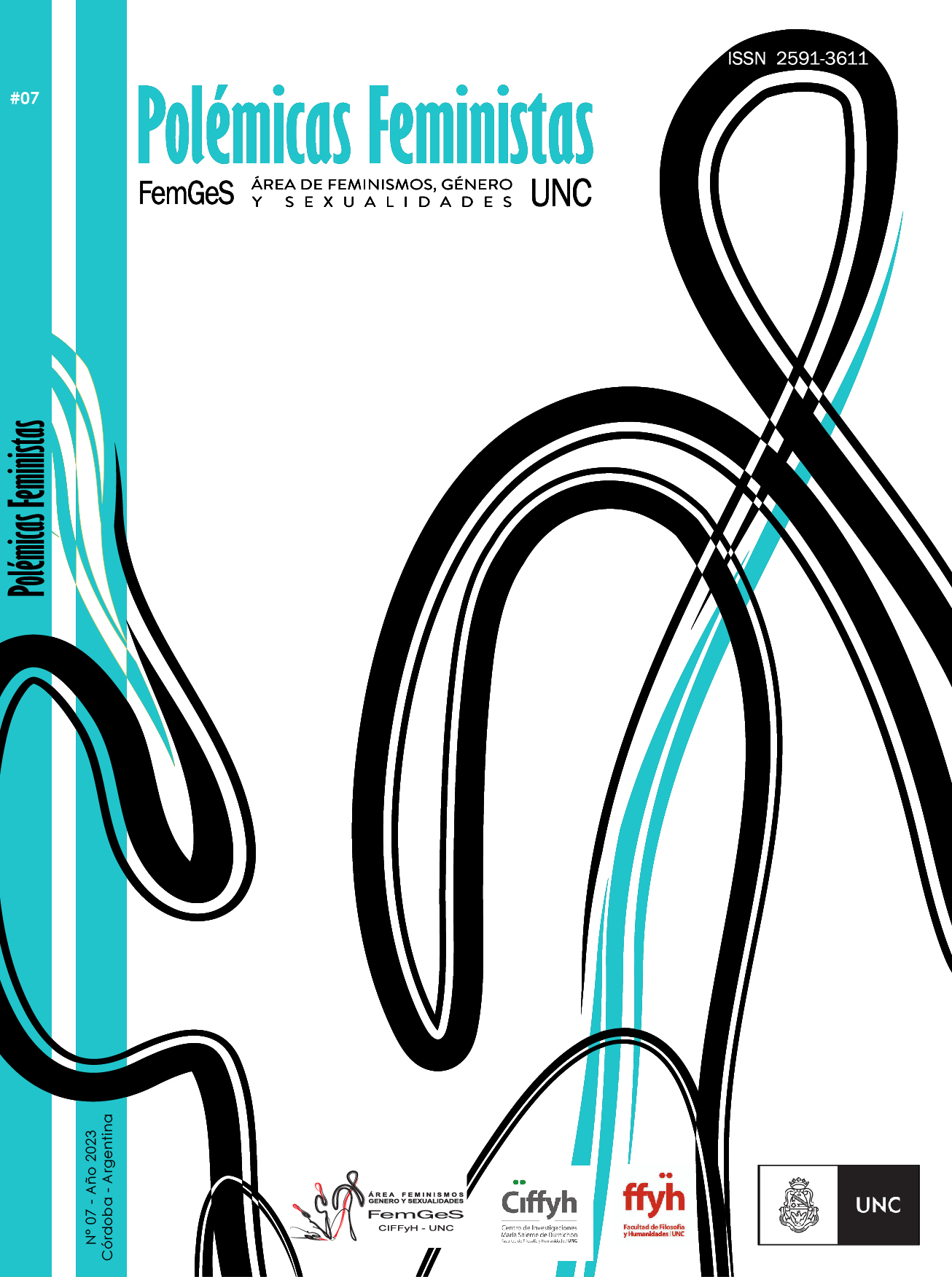Decoloniality, gender and resistance: animality as a meeting point
Keywords:
animality, coloniality, queer theory, resistenceAbstract
Coloniality was not only a violent and aggravating process of oppressions in the globalized world, but also the founding origin of new frontiers between bodies and existences. Modernity-coloniality placed at the center of "what is" the normative ideal of the human (the cisgender, white, heterosexual, bourgeois male), resulting in the domination and subordination of diverse bodies that, within some indigenous and native worldviews, were marked as different or marginalized: racialized people, queer existences and other non-normative subjectivities. Based on the human/non-human dichotomy, these "new" bodies and existences have been organized into ontological-political hierarchies - determining which ones matter and which do not - through different codes of domination such as race, ability, geopolitical location, gender, sexual orientation, species, among others. Within the framework of such a humanist power matrix, queer bodies and people have been animalized and, at the same time, codified as unnatural and deviant; and at the same time, these existences have been stigmatized for disobeying the order of the supposedly "natural" heterosexuality. Based on the above, we aim to point to decoloniality as an experience and a practice that vindicates and emancipates non-normative bodies, people and existences.
Downloads
References
Butler, Judith (2002). Cuerpos que importan. El límite discursivo del sexo. Paidós.
Cano, Vir (2020). Nadie viene sin un mundo. Editorial Madreselva.
Chen, Mel Y. (2012). Animacies: Biopolitics, Racial Mattering, and Queer Affect. Duke University Press.
Davidson, Martina (2020). María Lugones e o pensamento de trincheiras: decolonialidade e veganismos. En: Dias, M. C., et al. (ed.), Feminismos decoloniais homenagem a Maria Lugones, Rio de Janeiro: Editora ApeKu.
Foucault, Michel (1999). Estética, ética y hermenêutica. Paidós.
Freccero, Carla (2018). Queer Theory. En: Turner, L. et al. (ed), The Edinburgh Companion to Animal Studies, Edinburgh: University Press, 430-443.
Gaard, Greta (1997). Toward a queer ecofeminism. Hypatia, 12(1), 114-137.
González, Anahí Gabriela (2021). Políticas feministas de la animalidad. Decolonialidad, discapacidad y antiespecismo. Instantes y Azares. Escrituras Nietzscheanas, 26, 123-146.
Hird, Myra & Giffney, Noreen (2008). Queering the Non/Human. VT.
Lugones, María (2011). Lugones, M. (2011). Hacia un feminismo descolonial. La manzana de la discordia, 6(2), 105-117.
Mbembe, Achille (2011). Necropolítica seguido de Sobre el gobierno privado indirecto. Melusina.
Preciado, Paul (2018). “Lettre d’un homme trans à l’ancien régime sexuel”, Libération, 15.
Quijano, Aníbal (2007). Colonialidad del poder y clasificación social. En: R. Grosfoguel, S. Castro-Gómez (ed.), El giro decolonial, Siglo del Hombre, 93-126.
Taylor, Sunaura (2017). Beasts of Burden: Animal and Disability Liberation. New Press.
Downloads
Published
Issue
Section
License
Copyright (c) 2023 Anahí Gabriela González, María Belén Ballardo, Martina Davidson, Agustina Marín

This work is licensed under a Creative Commons Attribution-NonCommercial-ShareAlike 4.0 International License.
From 2022: Attribution - Non-Commercial - Share Alike (CC BY- NC- SA 4.0)
From 2011 to 2021: Attribution - Non-Commercial - No Derivative Works (CC BY- NC- ND)






